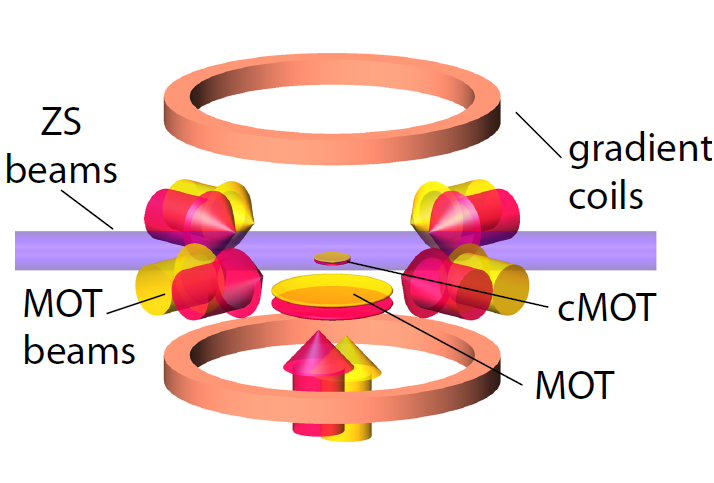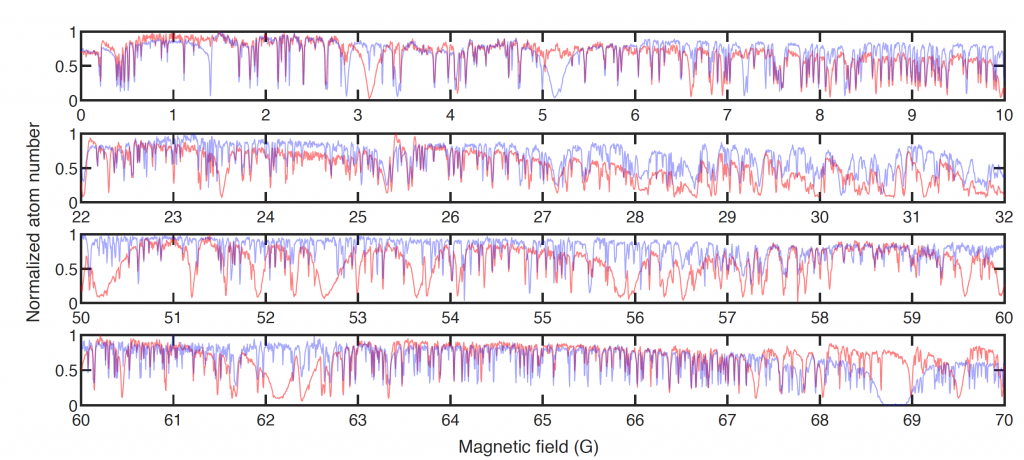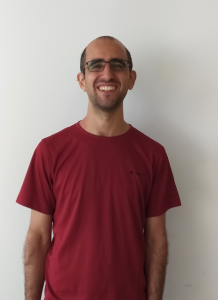
2024 PhD Openings!
We are happy to announce that our dipolar quantum gas group has two PhD positions open for 2024/2025!

Murder Mystery Dinner
Our 2024 group dinner took place on the 18th of January at CasoinN da Giorgio restaurant, with a 1920’s Murder Mystery theme!

Christmas celebration
Our team participated at the christmas celebration of the Institute, this time at a hut above Innsbruck!

Glitches in supersolids: links between neutron stars and quantum matter
By emulating the connection between a rotating supersolid phase and an external solid phase, we were able to replicate “glitches” – sudden jumps in the solid angular momentum driven by quantum vortices leaving the supersolid.

Cluster of Excellence Quantum Science Austria granted
Three Clusters of Excellence in Innsbruck have been funded! With highly endowed clusters of excellence, the Austrian Science Fund FWF creates Austrian flagships of basic research. The University of Innsbruck will coordinate the Cluster of Excellence for Quantum Sciences.

Atoms in Tweezers
In the T-REQS lab we have now loaded atoms in our optical tweezers.

Vortices in a dysprosium gas
By stirring the magnetic field which polarizes the atoms in a dysprosium condensate, we were able to generate vortices–tiny quantum tornadoes–in a dipolar gas for the first time!

Bloch Oscillations
By letting an erbium quantum droplet fall under gravity through an optical lattice, it is possible to understand the inter-atomic interactions and quantum fluctuations through variations of the Bloch oscillation.

ERC Advanced Grant DymetEr has been funded!

Happy 10th Birthday to the first Erbium BEC!
Our group studies dipolar quantum gases made of Erbium (Er) and Dysprosium (Dy) atoms. These extraordinarily magnetic species are a powerful new resource for reaching quantum simulation with strong connectivity, in which each atom is coupled to the other over long distances, and exploring exotic phases of matter that have no classical counterpart.
We have three labs: the ERBIUM LAB, where Er was Bose condensed for the first time ever, the Er-Dy LAB which studies quantum dipolar mixtures under a quantum-gas microscope, and the T-Reqs LAB, where we trap Er atoms in arrays of optical tweezers for Rydberg physics. Recently, we have established a theoretical subdivision aimed at studying and predicting dipolar phenomena in dipolar quantum gases and mixtures.
The group, led by Francesca Ferlaino, is jointly located at the Institute for Experimental Physics (IExP) of the University of Innsbruck and at the Institute for Quantum Optics and Quantum Information (IQOQI) of the Austrian Academy of Sciences, and it is part of the Innsbruck Center for Ultracold Atoms and Quantum Gases.
Follow our group’s updates on  .
.
News from the labs
The magic of Er and Dy: magneto-optical trap with only 5 beams!
Keep Reading ...
Now in Physical Review A! In collaboration with our theory colleagues from Paris (M. Lepers, J.-F. Wyart and O. Dulieu) we have determined the dynamical polarizability of ultracold erbium atoms in the ground and in one excited state at three particular relevant wavelengths.
Keep Reading ...
n experiments with magnetic atoms conducted at extremely low temperatures, scientists have demonstrated a unique phase of matter: The atoms form a new type of quantum liquid or quantum droplet state. These so called quantum droplets may preserve their form in absence of external confinement because of quantum effects. The
Keep Reading ...
Group news
Our publication on the first-time observation of roton quasiparticles in quantum gases was chosen by the editors of Nature Physics as one of their favorite papers of the past 15 years. To mark the anniversary of the journal, the most important works in the various disciplines of physics are presented.
Keep Reading ...
A key step in creating controlled interactions in dipolar quantum mixtures is the characterization of interspecies Feshbach resonances.
Keep Reading ...
Hagai has been awarded a postdoctoral fellowship for quantum science and technology from the Israel Council of Higher Education. As a postdoc, Hagai will study highly excited Erbium atoms trapped in a tweezer array in the T-REQS lab of Francesca Ferlaino.
Keep Reading ...
Welcome and goodbye
![]() .
.














